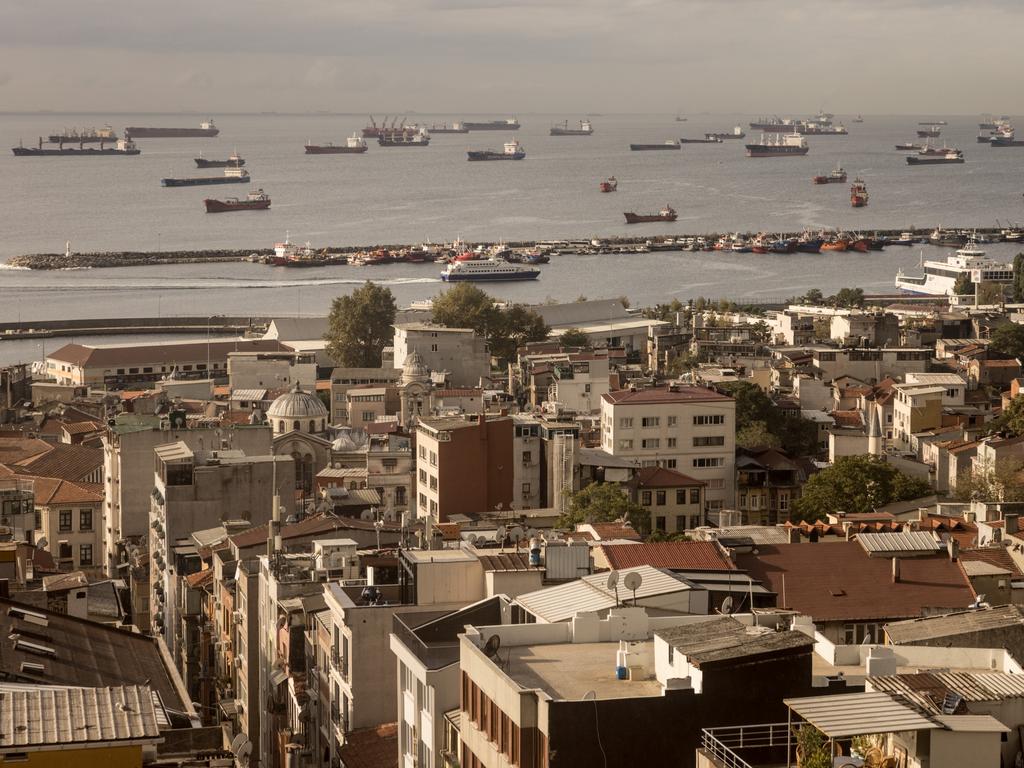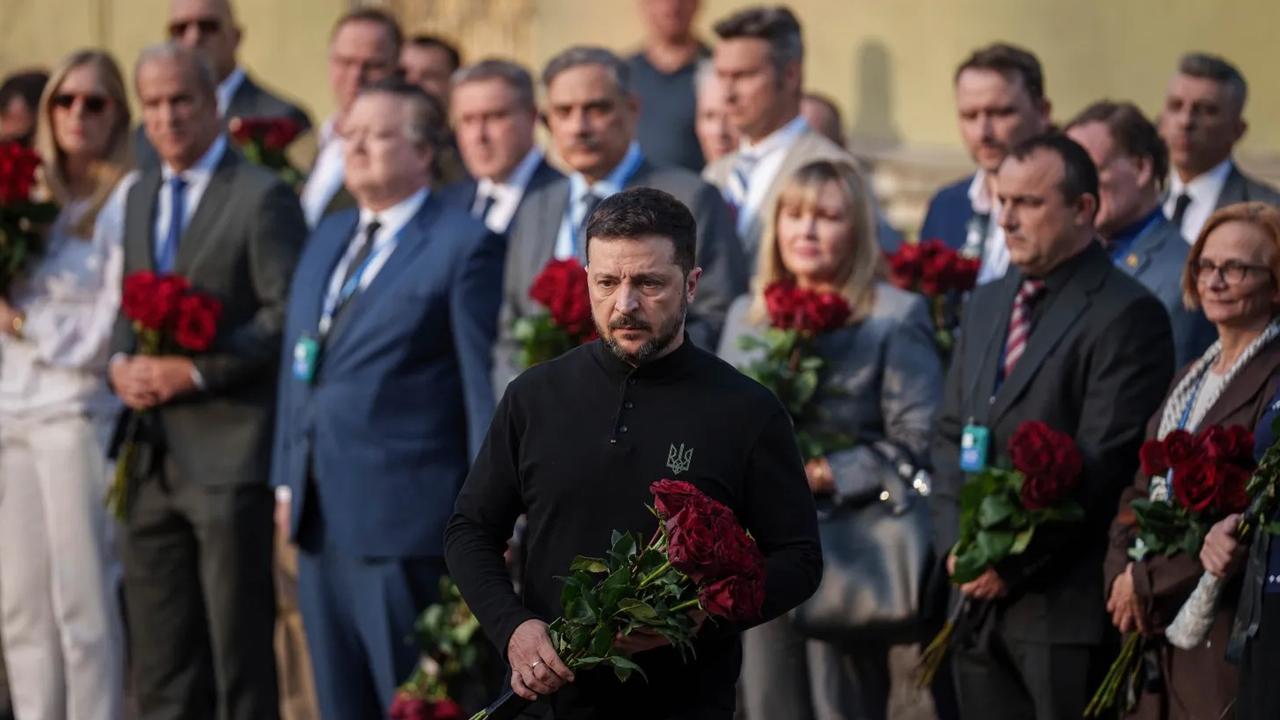Starvation fear as Moscow and Kyiv clash over grain corridor
Russia accuses Ukraine of exploiting the safe passages in the Black Sea to launch drone attacks on its naval base in Crimea.
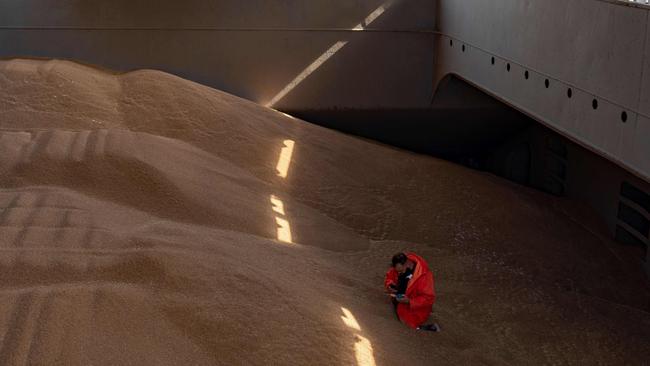
Russia has accused Ukraine of exploiting “grain corridors” in the Black Sea to launch drone attacks on its naval base in Crimea, after widespread condemnation of its announcement on Saturday that it would suspend a grain export deal.
Moscow was accused of “weaponising hunger” after it pulled out of the UN-brokered deal intended to ease the global food crisis caused by the conflict, claiming that Britain had worked with Ukraine to launch a massive drone attack on its Black Sea fleet.
The announcement provoked a chorus of condemnation, with President Biden calling it a “purely outrageous” move that would only serve to “increase starvation”.
Russia denounced the drone attacks on its fleet at Sevastopol in annexed Crimea - the headquarters of its Black Sea fleet and a logistical hub for its invasion of Ukraine - as “a terrorist attack” assisted by British naval specialists, and claimed it had targeted not only warships but civilian vessels ensuring the security of grain corridors through the Black Sea. On Sunday the defence ministry claimed that its forces had recovered wreckage from both aerial and maritime drones that provided evidence that Ukraine had exploited the grain corridors to launch the attacks.
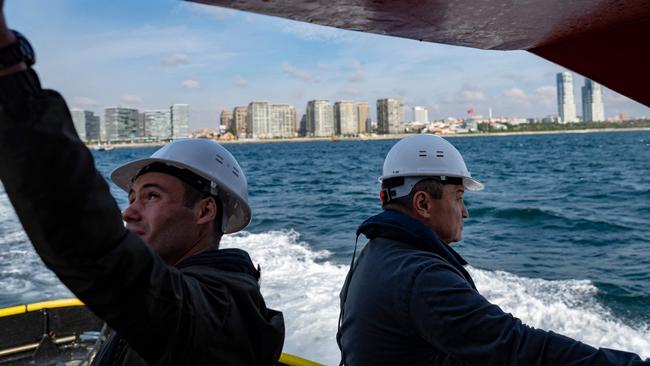
It claimed that the drones were launched near Odesa and moved along the “grain corridor” security zone before changing course to head for the naval base at Sevastopol. One appeared to have been launched from the security zone of the grain corridor, it added. “This may indicate the preliminary launch of this device from aboard one of the civilian vessels chartered by Kyiv or its western masters for the export of agricultural products from the seaports of Ukraine,” the ministry said.
Dmytro Kuleba, the Ukrainian foreign minister, countered that Russia had “pre-planned” its withdrawal from the deal, pointing out that the Black Sea explosions were more than 130 miles from the corridor.
Britain denied any involvement, saying the Kremlin was “resorting to peddling false claims of an epic scale”.
Ukraine urged Russia to “stop its hunger games” and heed a UN appeal to return to the deal, which was due for renewal on November 19. It said that the pullout made further grain exports “impossible”.
Oleksandr Kubrakov, the infrastructure minister, said that a shipment of 40 tonnes of grain scheduled to leave on Sunday was the first casualty of Russia’s decision. “These foodstuffs were intended for Ethiopians that are on the verge of famine,” he tweeted. “But due to the blockage of the ‘grain corridor’ by Russia the export is impossible.”
President Zelensky said in his nightly address that Moscow’s announcement threatened “large-scale famine” in Africa and Asia. “Just today, more than two million tonnes of food are in the sea. This means that access to food has actually worsened for more than seven million consumers.”
Ukraine is one of the world’s most important exporters of grains and oilseed and provides more than 40 per cent of grain distributed in the developing world by the UN’s World Food Programme. More than nine million tonnes of grain have been exported from its Black Sea ports since July.
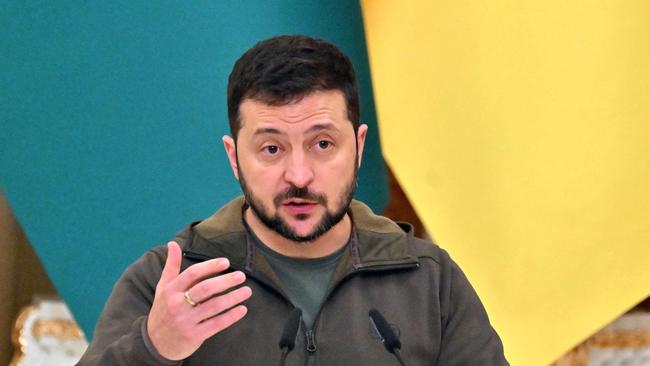
Security sources in Turkey said Moscow had not “officially notified” it that it was suspending co-operation.
The European Union joined the UN in urging Russia not to abandon the deal. “Russia’s decision to suspend participation in the Black Sea deal puts at risk the main export route of much needed grain and fertilisers to address the global food crisis caused by its war against Ukraine,” Josep Borrell, the EU foreign policy chief said.
The Times



